 Petzlover
PetzloverHavana Brown is originated from United Kingdom but Selkirk Rex is originated from United States. Both Havana Brown and Selkirk Rex are of same weight. Both Havana Brown and Selkirk Rex has almost same life span. Both Havana Brown and Selkirk Rex has same litter size. Havana Brown requires Low Maintenance. But Selkirk Rex requires Moderate Maintenance
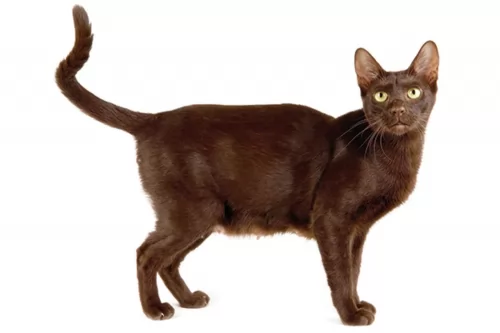 The rare Havana Brown cat seems to be a result of a planned breeding between Siamese and domestic black cats.
The rare Havana Brown cat seems to be a result of a planned breeding between Siamese and domestic black cats.
It was in the 1950s that cat fanciers in the UK became the early breeders. These breeders called themselves the Havana Group. They created the foundation of the modern-day Havana Brown cat.
These breeders managed to produce chocolate shaded kittens which became known as the Chestnut Brown Oriental. Kittens arrived in the US and were crossbred with the Chocolate and Seal Point Siamese to produce chocolate-colored kittens.
In 1964, the Havana Brown was accepted for Championship status by the Cat Fanciers Association.
The Selkirk Rex originated in the USA in 1987. A host of cats have been used to develop this cat breed – Persians, British Shorthairs, Himalayans, American Shorthairs, Exotic Shorthairs, and others.
There was a litter of kittens and the odd one out, one with an unusual coat – was placed with the breeder, Jeri Newman, who bred the cat with a black Persian.
Three Selkirk Rex kittens were born as well as three straight-haired kittens. The cat has been developed with either long- or short coats. The Selkirk Rex cat breed is recognized by various cat associations such as the International Cat Association, the American Cat Fanciers Association in the 1990s as well as the Cat Fanciers Association in 2000.
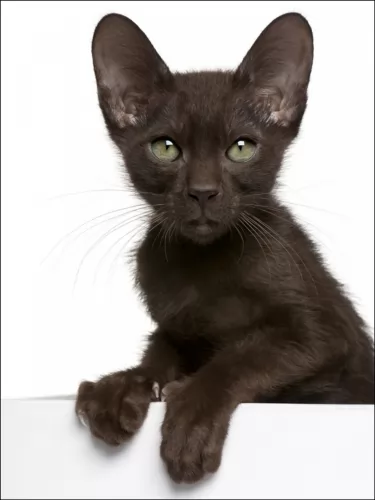 The Havana Brown is a medium-sized cat, being somewhat slender and weighing between 3 and 6kg. The body is long and muscular and the cat has a beautiful brown short to medium-length coat.
The Havana Brown is a medium-sized cat, being somewhat slender and weighing between 3 and 6kg. The body is long and muscular and the cat has a beautiful brown short to medium-length coat.
The coat color is in fact a rich reddish-brown shade. The ears are fairly large and round-shaped and the oval-shaped eyes are a beautiful green.
The Havana Brown is an intelligent, playful, curious cat who enjoys being in the company of its human family. They tend to gravitate towards one favorite family member.
They’re cats that don’t like being left alone for long periods of time. They get on well with children and he also won’t object to becoming friends with the family dog as well.
Friendly though they may be, they also enjoy spending some time on their own. Individual personalities vary but most are playful and talkative.
The Selkirk Rex is a medium- to large-sized cat that will weigh between 3 to 6kg. He is a well-built cat of which you get a short- and long coat variety. The coat is available in all colors. The coat has a soft, woolly look to it with some curls.
With the long-haired variety, the cat has a well-plumed tail. One drawback perhaps is that the cat is a fairly heavy shedder, and perhaps wouldn’t be a good choice for those with allergies.
This is a lively, playful, energetic cat with a friendly temperament. Cat experts will tell you that it is the Persian and British Shorthair ancestors that have given him his placid, lovable nature. He is, however, more active than those cat breeds and loves to play.
Tolerant and affectionate, the Selkirk isn't a lap cat. Because he has a sociable nature, he dislikes being left alone for long periods of time.
The Selkirk Rex fits in well with households where there are well-behaved children and other pets. He is such a loving cat and loves to be in the company of his human companions. He isn’t demanding and likes to talk to you in a quiet voice.
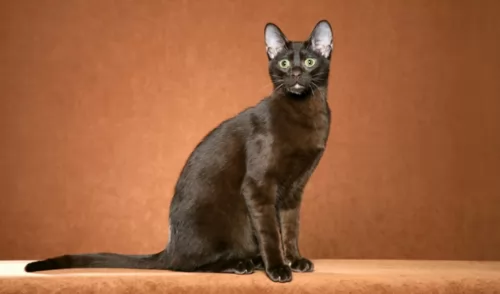 There is a good reason why the Havana Brown cat is so popular. People love the unusually rich brown coat which always has a gleam to it.
There is a good reason why the Havana Brown cat is so popular. People love the unusually rich brown coat which always has a gleam to it.
They also love that this chocolate-colored cat has a wonderful personality and can be a solid companion for humans. So long as you don’t leave him alone for a long time on his own, as that is part of his charm – wanting to be constantly involved with his human family.
When you welcome a Selkirk Rex cat into your home, you’ll have a loving friend and companion.
They love to bask in the attention they get as they’re quite unusual with their wavy to curly coats. People are always wanting to touch it.
The Selkirk Rex cat is an active, playful cat and has a whole lot of love to offer you.
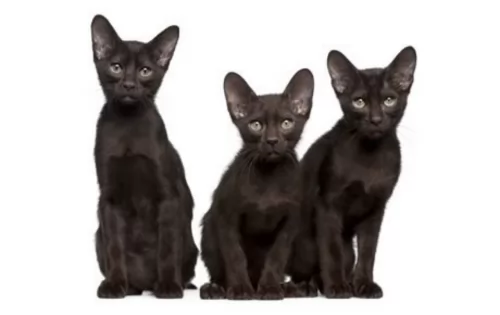 There are no known genetic diseases associated with this breed. They may have a bit of a higher occurrence of gingivitis than other cat breeds, and this thought to come from them having their Siamese ancestry.
There are no known genetic diseases associated with this breed. They may have a bit of a higher occurrence of gingivitis than other cat breeds, and this thought to come from them having their Siamese ancestry.
Beware of bladder stones with your cat which can start at any age. The stones can start off small but can grow larger, rubbing against the bladder walls and resulting in inflammation.
Bladder stones can also lead to blockage of the urethra so that your cat isn’t able to urinate. There are symptoms to indicate your pet may have bladder stones and these can be straining to urinate, painful and little urination, urinary tract infections, and blood in the urine.
This is a time when you want to get your pet to the vet just as soon as possible.
Also, be on the watch for eye infections. Conjunctivitis is one of these to look out for but there are other eye infections your cat can experience. They can come about because of an upper respiratory infection that spreads to the eyes, but they can be caused by any number of things such as bacteria, parasites, and viral infections.
You’ll notice your cat pawing at his eyes and there may even be redness, discharge, and swelling. You vet will be able to treat eye infections with ointments and eye drops.
The Selkirk Rex cat, if looked after well and given excellent food can live to be 15, 16, or 17 years of age. Some of these cats can suffer from hair loss. Remember, that every cat will require vaccinations and de-worming.
Chronic kidney failure usually develops over a number of months. Chronic kidney failure in cats is a progressive illness but if you get your cat to the vet it can be managed. The vet will want a sample of your cat's urine and possibly a blood test.
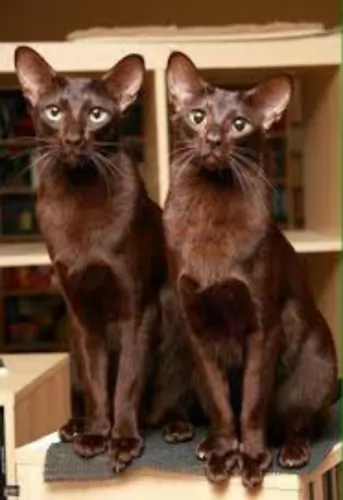 With the cat’s short coat, he experiences little shedding so very little grooming is required. A gentle brush once a week will be enough. These cats love attention and submit easily to a brush and body rub with a soft rubber brush.
With the cat’s short coat, he experiences little shedding so very little grooming is required. A gentle brush once a week will be enough. These cats love attention and submit easily to a brush and body rub with a soft rubber brush.
Check inside the mouth as periodontal disease is a problem with cats. You want to make sure that there aren’t any bad teeth as this can cause a lot of pain.
A vet can also be useful in examining your cat and pinpointing problems.
Check the inside of the ears too because they can become somewhat clogged with wax and dirt. If you don’t want to probe inside the cat’s ears with a cotton ball with warm water and apple cider vinegar, you can take your cat to the vet or to a professional cat groomer.
Keep the litter box of your cat spotlessly clean as these cats are fussy with cleanliness.
Your Selkirk Rex will need to have his fur brushed. You don’t want to brush him too hard every week as this can cause the curls to frizz. Rather use a spray bottle with some cat conditioner and lightly spray the curls and use your fingers to ‘comb’ his hair.
Provide your cat with well-balanced meals. Your Selkirk Rex is a carnivore and you have to ensure that his food is made up of meat. The best commercially manufactured cat foods know how to correctly balance your cat’s food so that it gets the perfect blend of vitamins and minerals. Always choose a good brand of cat food that will meet your cat's nutritional needs. If you’re unsure, you can always ask your vet for suggestions about good quality food that will help towards ensuring good health for your cat.
The cheaper, unknown brands may not have the best ingredients to keep your cat happy and healthy. Remember to read the labels as a growing kitten will require different food to a senior cat.
Provide your Selkirk Rex with a litter box, scratching post, and a climbing tree.
Your kitten will need to be vaccinated to protect him from some of the life-threatening diseases cats can get. Most of the vets these days recommend a combined vaccine, starting at about 8 weeks of age. These vaccines will protect your kitten from Feline Leukaemia Virus, Feline Parovirus, and cat flu.